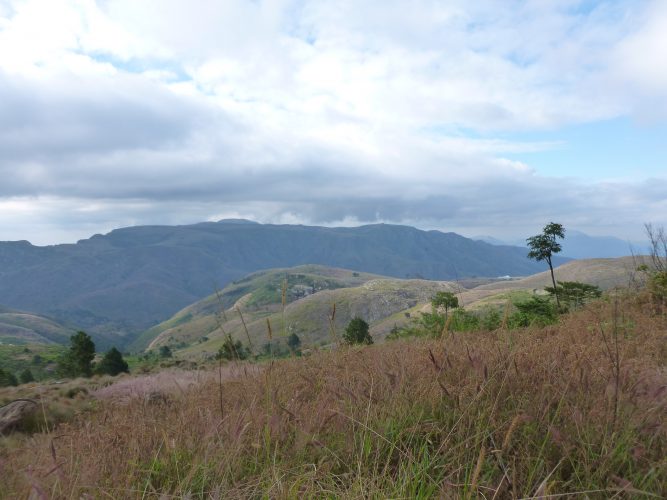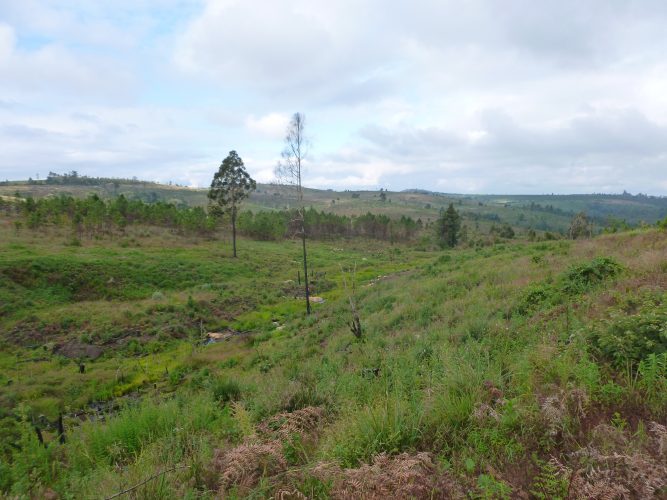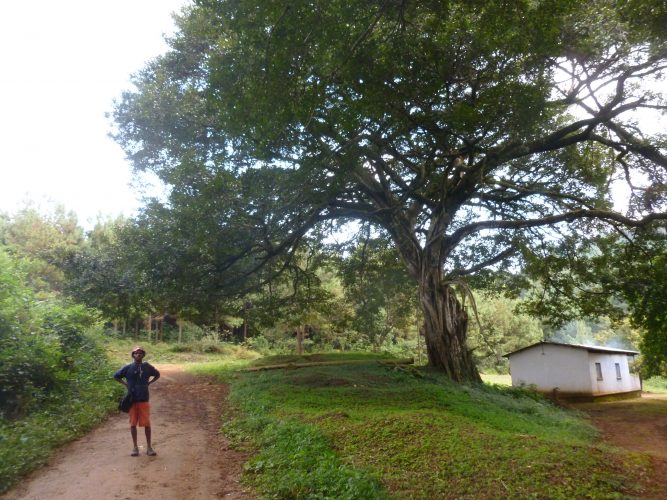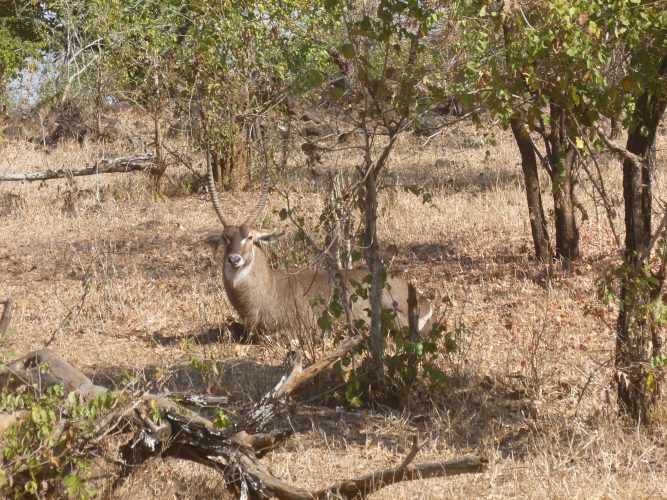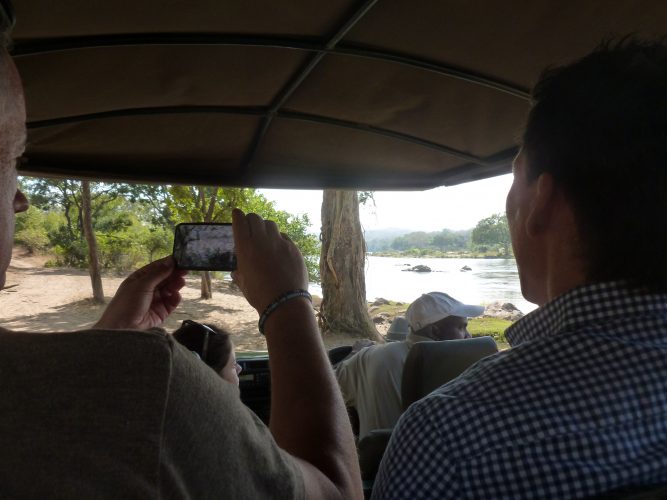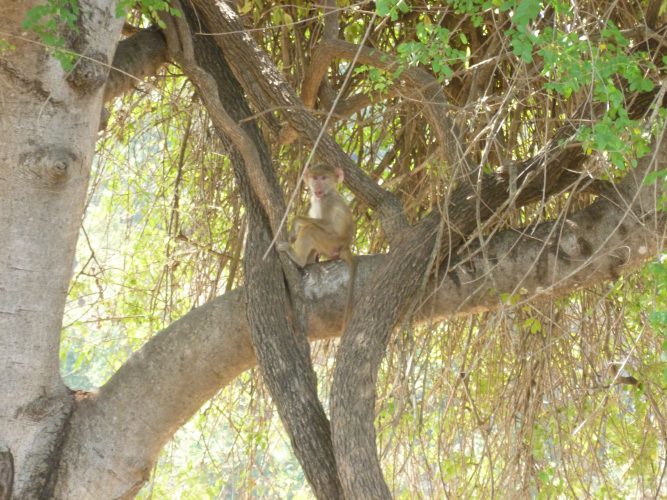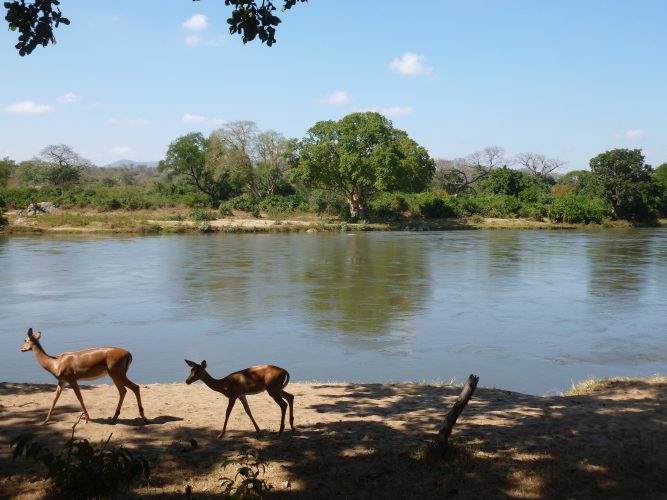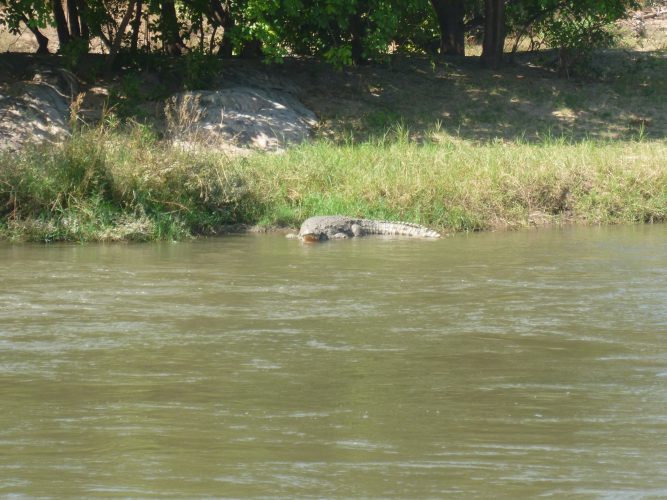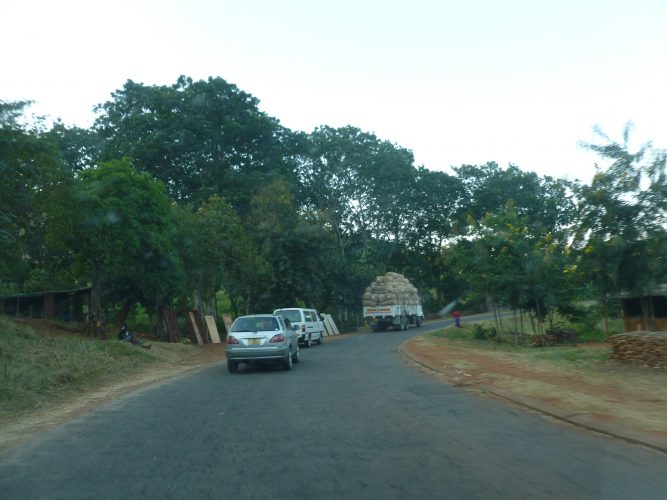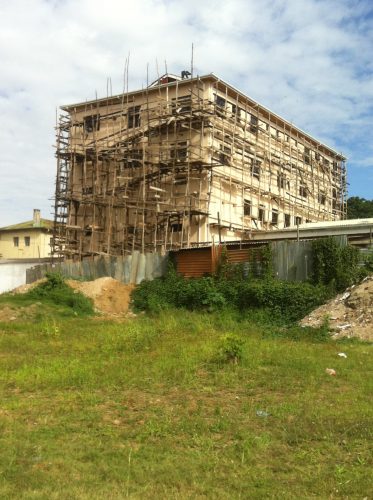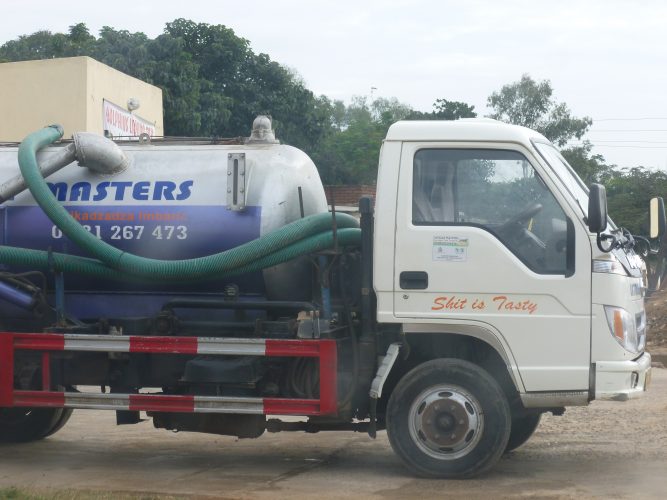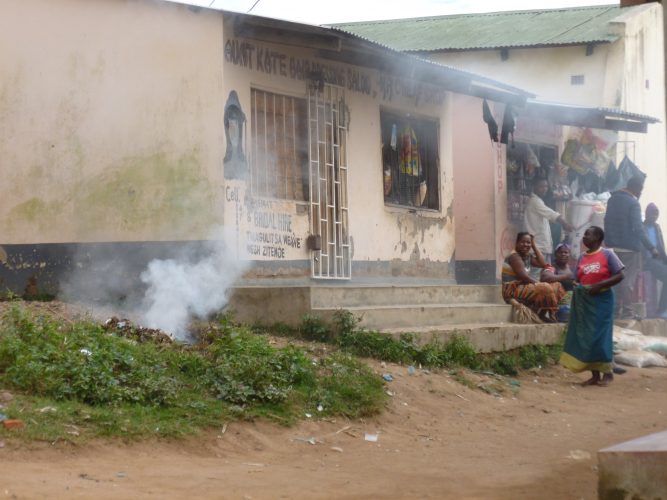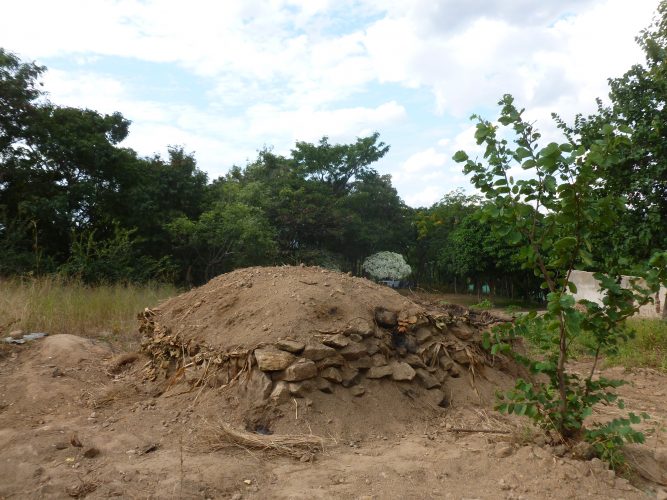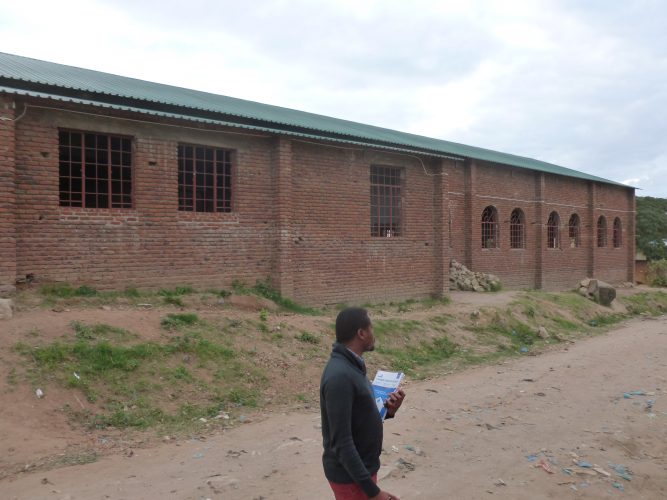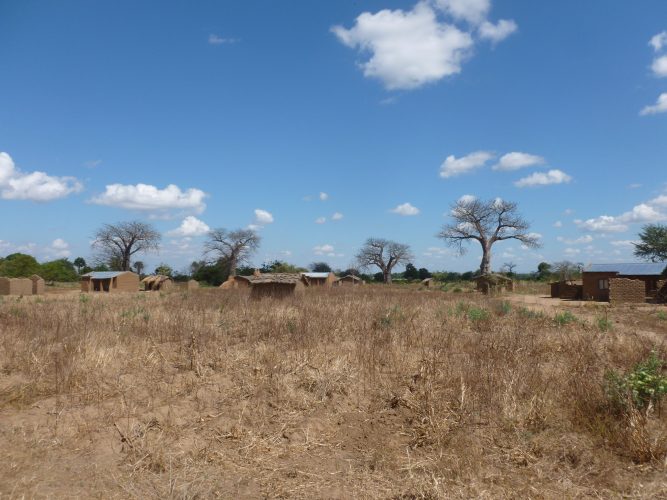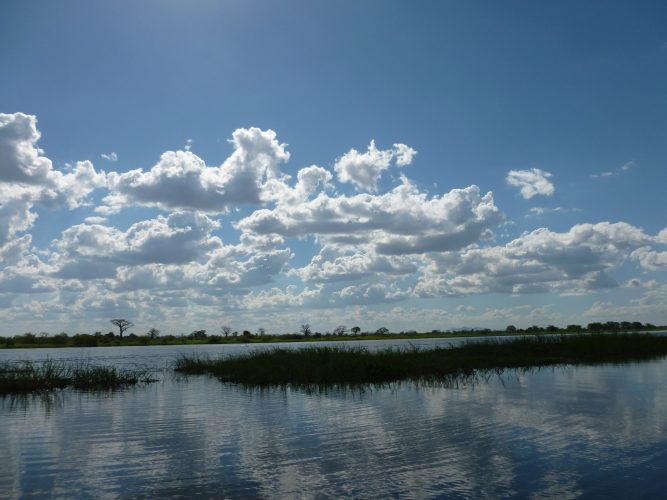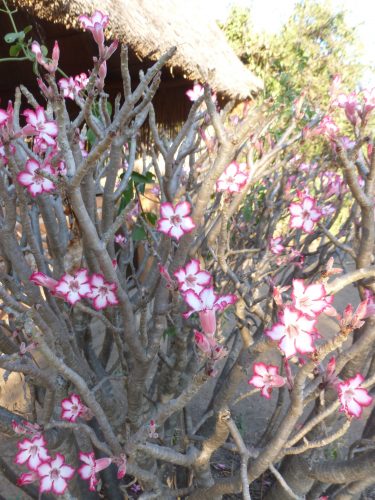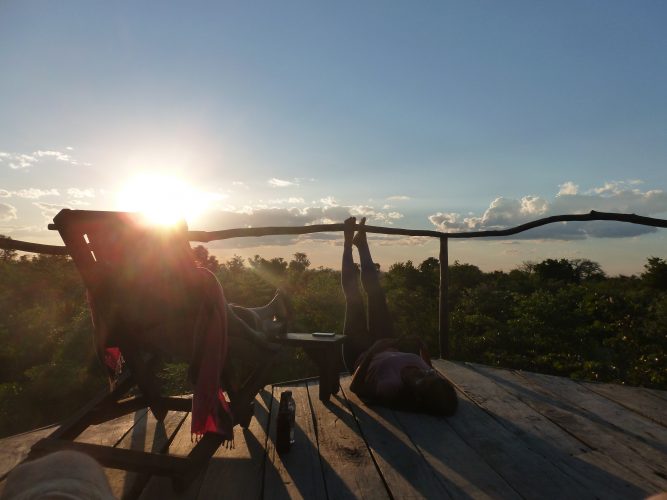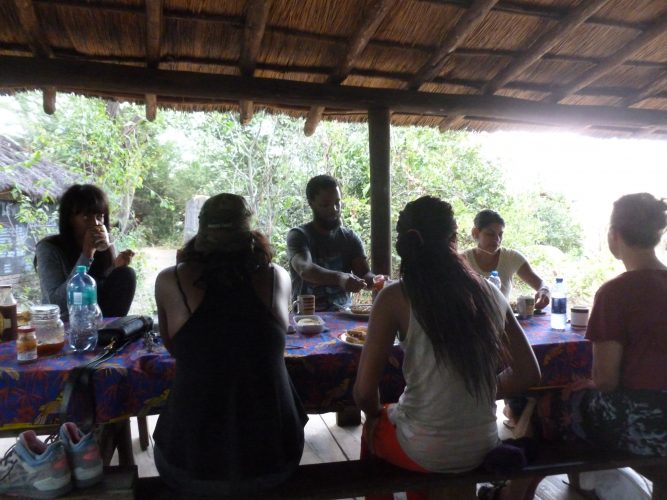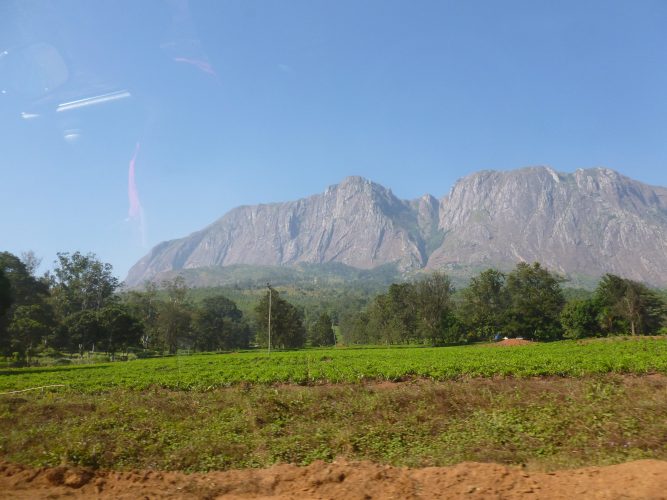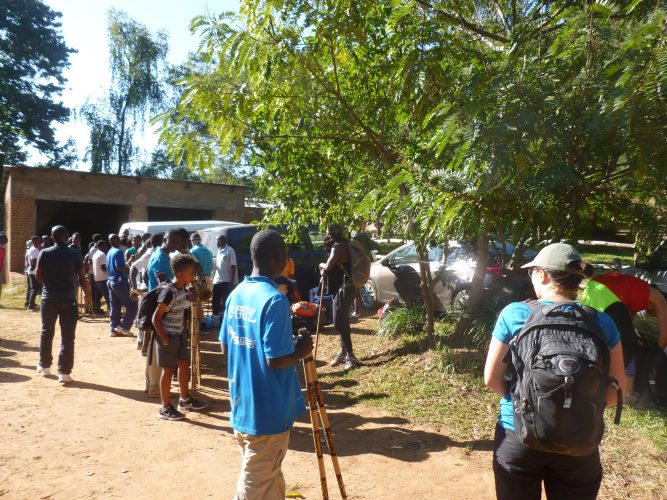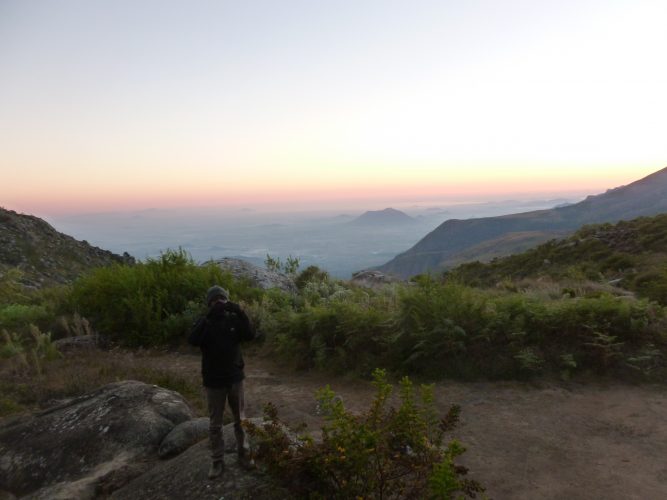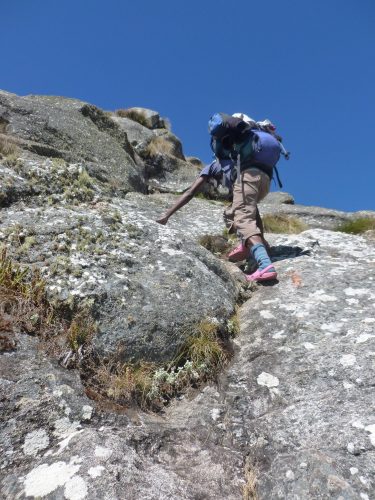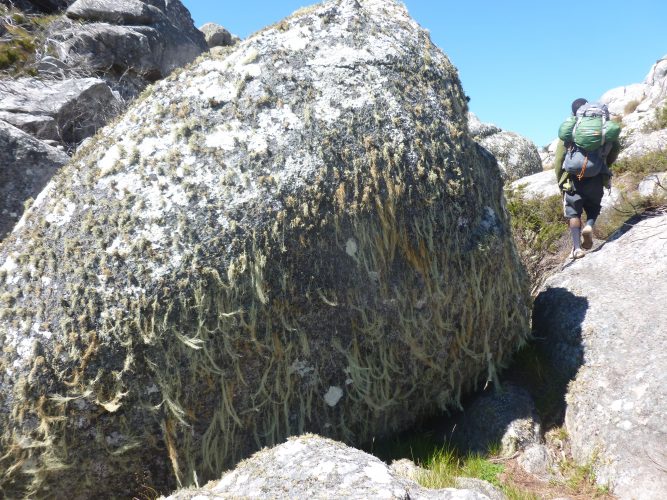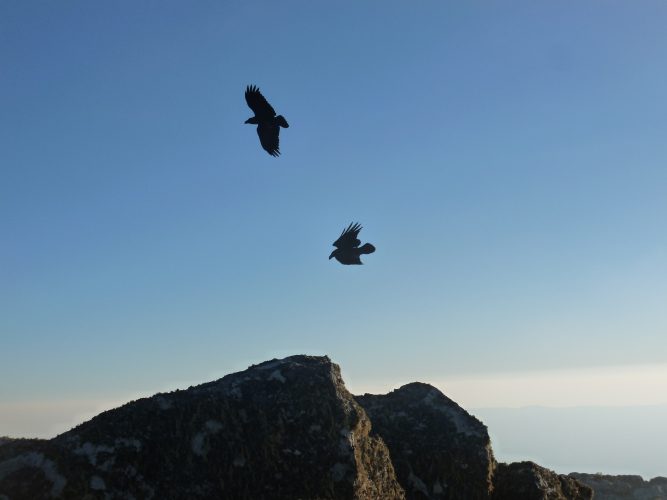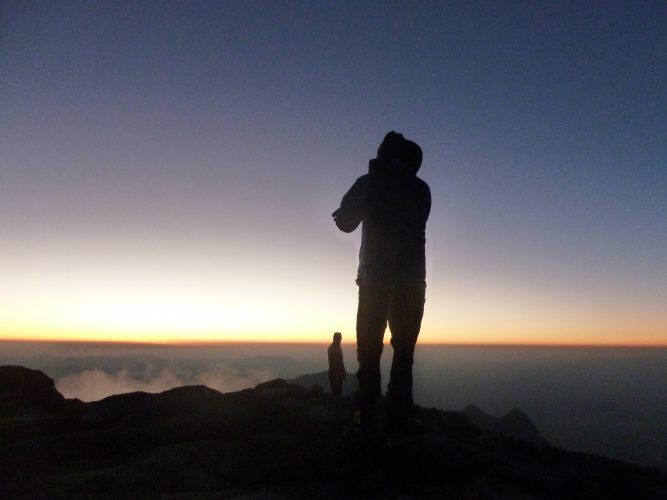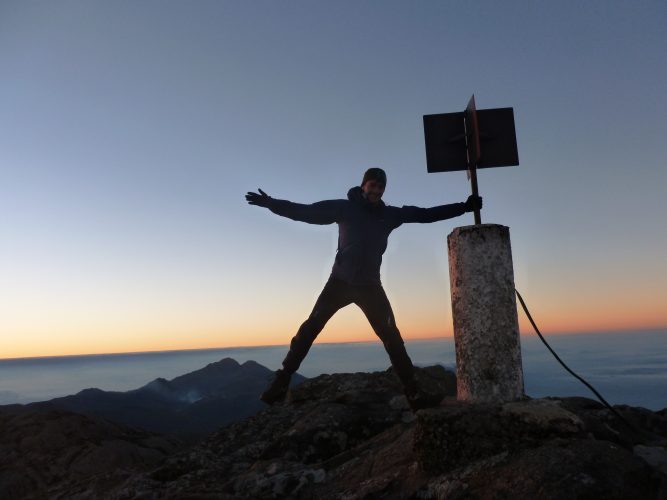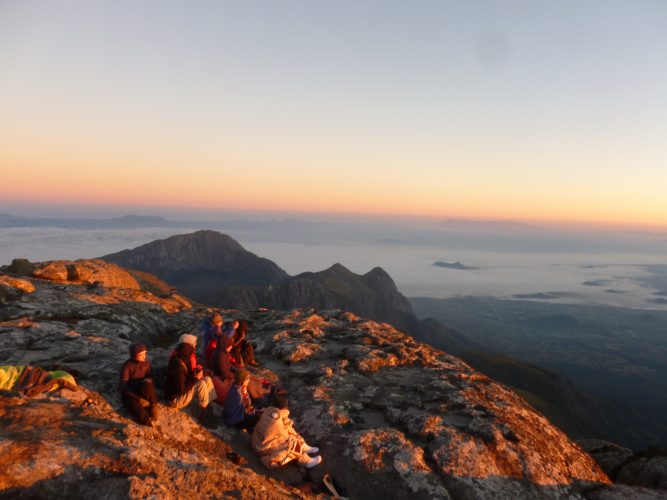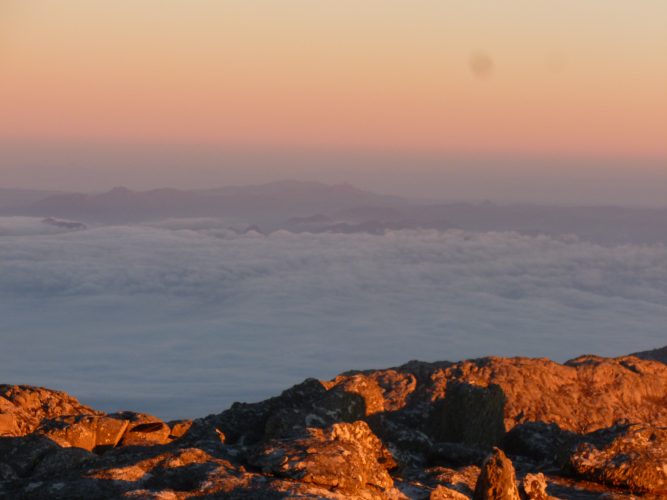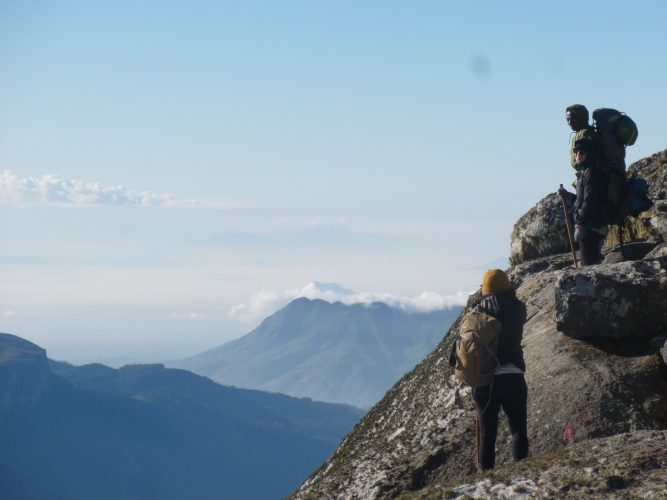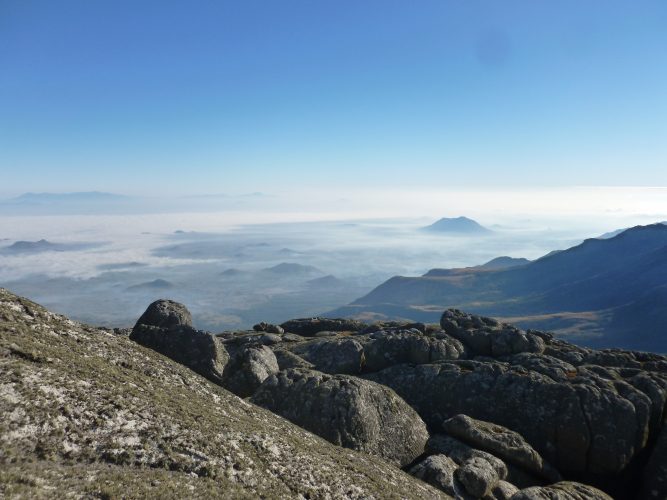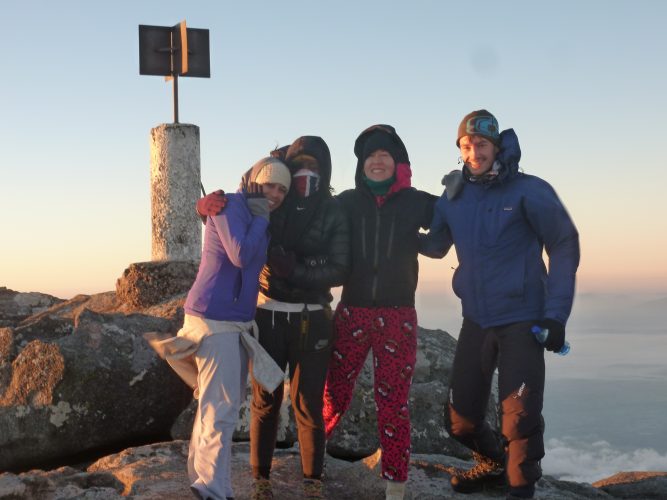Malawi
Elephants on top of the world
June 8, 2018

Writing these lines, I’ve already left Blantyre and am heading to Harare in Zimbabwe to travel around the country. My time in Malawi passed so quickly that it still feels like yesterday that I arrived while in fact it has been over eight weeks already. The practical work for my project is almost finished. During the last days of sampling, the story described in my last letter repeated itself: Every day, the pit emptying guys started working around 2 h later than arranged. But I still managed to collect samples from 40 households within the scheduled time, so I’m happy with that. The last two weeks, I was busy with the lab tests and first data analysis. The only thing that I would still have to do here, is to finish one lab test where I’ve run out of reagents. As the tests involves mercury, I could not take the vials on the plane with me. As a consequence, I’ve been trying since almost three months to find a supplier who can ship the reagents to Malawi. After five weeks, we had found a Tanzanian company which said they would deliver until the end of May. Two weeks ago, they told me that they had delays and would only be able to ship the reagents from the US at the end of May. So we changed the supplier to a Zambian company, and now I have to hope that they still arrive before I fly back to Europe.
I suppose that also some lecturers at the university are very happy that I’m now finished with my work: The university was designed for 1000 students. Currently, around 5000 are enrolled. As a consequence, there is a great shortage of rooms and even laboratories are used as classrooms. At this point, the conflict might already become evident, considering that my experiments consist in drying faecal sludge. This produces quite strong smells about which certain lecturers were not exactly pleased. But we found the compromise that I started the oven only in the evening so that most smell production occured during night. Another remarkable point about the university are the tuition fees. In the first years of the Bachelor, they are around 100 $ per year, but increase to several thousand per year for the Master. This is interesting given that A) many households earn less than 50 $ per month – sending a child to university is basically impossible for them; and B) at least the fees for the Master are more expensive than in many European universities, although the quality of education is certainly not better.
So far, I’ve always navigated around one classical topic for a travel blog: Food. The most important crop in Malawi is maize. Mostly, it is ground to a fine flour and used to cook a kind of porridge called Nzima. Nzima in itself doesn’t have a lot of taste, but it is obviously also not eaten plain. Often, it is served with kidney beans and vegetables. Meat is expensive and, therefore, not eaten very often by most people. Still, you can buy living chicken on every market, and it is a common sight on the streets to see people carrying a chicken home (mostly still alive, but completely tied up and held on the feet). This does not seem very animal-friendly, but I would still argue that these chicken have had a much better live than the ones you can buy in a supermarket in Europe. When I was collecting the samples, I saw chicken everywhere, roaming around freely between the houses, looking for food. Besides that, there are lots of fruits: Bananas, avocados, oranges, apples, … (and mango/pineapple around December). Most farms here are subsistence farms, meaning that most families have a small plot of land either in the city or in the village where they come from. There, they mostly grow maize, and some also other vegetables and fruits. The harvest is mainly for their families. If they produce more than they need, they sell it on the streets or on the market. So in most parts of the city, there are people sitting on the ground with a pile of oranges or some bananas that they try to sell. I‘ve actually never bought any vegetables or fruits in the supermarket. Given that pesticides are expensive and most people need subsidies to buy fertilizer for their maize, I would also suppose that most of the stuff sold on the streets is “organic”, and for sure it is locally produced. So, in summary, it is very well possible to survive here as a vegetarian!

A rather sad aspect of living in Malawi is the presence of death in daily life. At an HIV-prevalence of 12 % among the whole population and given the often poor hygienic conditions and medical supply, many people die even at young age. One of my hiking guides, for example, had originally 7 siblings, out of which 4 have died already. Related to this is a very prominent funeral culture. People attend funerals not only of relatives or close friends, but also if they had known the person only very distantly. Recently, my housekeeper went to the funeral of the mother of the husband of his wife’s sister (not sure if I remember it correctly, but it had at least 3 or 4 “of’s”). And the funeral was not even in Blantyre, but he had to travel through half of the country to attend it. Sufia, my housemate, employs around 200 people at the hospital and she also says that it is incredible how often people are on leave to attend funerals. As funerals are so important here, people don’t have to take a day off to attend them, but they get “funeral leave”. Also, the cost of a funeral is covered by the employer of the deceased person (this funeral insurance covers not only the employed person itself, but also close relatives). I haven’t attended a funeral myself, but apparently also the funeral itself is very expressive – sometimes, professional wailers are hired whose job is to cry and wail during the funeral.
As so many people die, there are also several traditions related to death. If your wife or husband dies and you’re still more or less young, you cannot simply marry again. Rather, there will be a commission consisting of members of both families which has to officially allow you to marry again. Usually, this is only a formalism, but can become important if the family of the deceased person is suspicious that the death hadn’t occurred naturally. As this tradition is very strong, it is basically morally inacceptable to marry unless you have the permission of the commission. On the other hand, it is expected of you to marry again quickly as unmarried young people are not very well accepted. When the permission is given, the widow gets four items as symbols that she can marry again: a coin, a piece of cloth, a razor, and the fourth thing I’ve forgotten ;). For a man, it is only a coin and a knife.
Last death-related story of this report: In the culture here, babies under the age of around 6 months to 1 year are not considered as full human beings. Reason for this is that they are not capable of surviving on their own or do anything. This may at first sound like a funny side note, it has, however, severe implications: If a baby under the age of 6 months dies, it doesn’t get a proper burial. It is only wrapped in a piece of cloth and buried half a meter deep in a special section of the cemetery, making it likely that wild animals will dig it out and carry it away. Also, people are not sad or grieving if a baby dies at such a young age – they see it more as an object that is broken and try to get another one soon. I’ve met a German doctor who has been working here for some years now and he was in fact the first one to tell me about this (it has, however, by now been confirmed by my trusted Malawian cultural exchange partner J). The explanation that the German doctor gave for this was that most cultures relying on subsistence farming have very high mortality rates of newborns. That is why they shift the definition of a human being to higher ages, in order to avoid having to cope with so many dying babies on a deeper moral level. My Malawian friend has not confirmed this explanation, so I just write it down here as one hypothesis.

Now – change to more cheerful topics 🙂 Over the past three weekends, I’ve travelled quite a bit around the southern part of Malawi – and it is very impressive. Three weeks ago, I first went to Zomba, a town one hour north-east of Blantyre which has a plateau rising behind the town, ideal for hiking. On Sunday then, I visited Majete game reserve, one and a half hours south-west of Blantyre – a small wildlife reserve and the only one in Malawi which has the “Big Five” – lion, rhino, buffalo, elephant and leopard. I won’t write more about these two trips, but I’ve added some photos to the dropbox.
What I would like to write more about are two very special experiences on the last two weekends: On the weekend before the last one, we went to Liwonde National Park to celebrate the birthday of a friend. There, we stayed in a lodge inside the park, and the special thing about this camp is that it is not fenced. Before going to the camp, I didn’t really think about the consequences a lot. This changed quickly after arrival when the owner of the lodge alerted us that we should be careful to not bump into an elephant when walking to our dormitory. This might sound funny, but can end very badly if the elephant gets scared of or surprised by you. Moreover, the owner added that 3 days ago, 5 lions had been reintroduced into the park, and they had been released only 5 kilometers away from the camp. Not the most calming information, is it? To put this into perspective, however, it also has to be said that both elephants and lions are naturally scared of humans and will only attack them if they see no other option to defend themselves. So they don’t come into the camp to hunt for humans.
The first night stayed calm, but when we returned from our boat trip around lunch time the next day, the staff of the camp informed us that there was a herd of elephants feeding close to the camp. Meaning that we should be very careful walking to our hut. We then went to an observation deck close to the camp, and indeed some 15 minutes later, a small herd of elephants came closer, eating from the bushes and trees. At some point, the leading female of the herd must have seen our human silhouettes standing on the platform, and as elephants have a clear correlation “humans – danger” engraved in their common knowledge, she made some threatening movements towards the platform. Luckily, the owner of the lodge, who knows a lot about animal behavior, was on the platform with us and advised us to stay calm and sit down slowly.
After dinner, we were playing cards on the dinner table which is in a sort of open hut without walls, and basically on ground level between bushes. After a while, a guard came to our table and told us that some elephants from the herd we had seen in the afternoon were approaching the camp. And it took indeed not longer than 30 minutes until two elephants slowly approached our table, feeding from the surrounding trees and bushes. At this point, you don’t really have any other option anymore than to remain seated and to either not move at all, or very slowly. But no chance of leaving the table. So we just kept sitting there – and elephants take their time to eat! In total, we were in this state for around 1.5 – 2 hours, until both elephants had disappeared again. At the closest point, one elephant was standing around 3 meters behind us. This was a new experience for me in the sense that it was probably the first time in my life that I actually felt that an animal was more powerful than me and could easily kill or severely injure me if it wanted to. Again – this is a purely hypothetical thought as elephants are very peaceful animals who will only attack you if they feel in danger or if they want to protect a baby. Also, they are very smart animals: they know very well that the people inside the camp don’t want to harm them, else they would not go there to feed. So only if you made a rapid, unexpected movement towards them, they might attack you. But still it was a humbling experience.
After that situation, I asked Fred, the lodge owner, how often these situations occur. After the rainy season (= now), he said that it’s around once a week that they come into the camp. In the dry season, however, many animals from the whole park come to the area of the camp as it is there where it still is relatively wet in the dry months. Then, there might be several hundred elephants around the camp, and they actually actively chase them away by setting elephant dung on fire around the camp. This creates smoke that is irritating for the eyes of the elephants.

The second very impressive experience occurred last weekend. Mulanje is a large mountain area close to the border with Mozambique. We joined a trek organized by the Mountain Club of Malawi (MCM) to climb up its highest peak Sapitwa at 3002 m (which is also the highest peak in Malawi overall). We started on Friday afternoon around 3 pm from the car park at an altitude of 1000 m. Goal of the first day was a hut built by MCM at the base of Sapitwa, around 2000 m above sea level. It took us around 6 hours to reach the hut from the car park. As the sun sets around 5h30, we had to walk around 3.5 hours in the dark, navigating only with torches and headlamps. I’ve never done this before – at first it is interesting, but after a while it gets really cumbersome as it is quite disorienting to only see a very limited part of the path. The hut was not comparable to most Alpine huts – there was no restaurant ;), but it served more as a shelter from the wind and it had a small fireplace to cook dinner. The next morning, we started around 9 am to climb the remaining 1000 m up to the peak. And for this part of the trek, it was really climbing, as there was not really a path anymore, but many steep, slippery slopes and big boulders to climb over. Luckily, we had good local guides. They also carried most of our luggage, which occurred rather strange to me in the beginning, but A) we wouldn’t have been able to carry everything up ourselves, and B) these jobs create valuable income in an area that doesn’t offer many other possibilities to earn money. We reached the summit around 2 pm, and that’s where the fun part started: It was soooo windy on top that you were cold basically the moment you arrived on the summit. So, we took some pictures, and headed down again soon after. Wrong. This is what most rational people would do. Our plan was, however, to spend the night on the summit in order to see the sunrise from the top on the next morning. So, we put up our tents (fun enough at such strong winds), warmed some food (also not easy to light the cooker as it was basically blown out repeatedly), and then most people went to bed around 5 pm as inside the tent was the only place where you were at least a bit protected from the wind. I stayed outside for a while to also see the sunset, which was not very well visible as there were constantly clouds forming around the summit and disappearing again. But this in itself created somehow a magical atmosphere. Soon after, I also went to bed. Sleeping was an interesting task, as the wind was so loud that some people could only sleep for some hours (unfortunately, the sound of the wind was not the only problem – it obviously also made you freeze over time).
But we all survived the night and got up at 5 am the next morning to be in place for the sunrise. The actual sunrise was only around 6 am, but it was totally worth getting up one hour before. This way, we could enjoy how it got gradually more and more light. And the fascinating thing about Sapitwa is that Mulanje (the mountain massif) stands pretty isolated in a more or less flat plane. It is not part of a mountain range. And as we were on the highest peak of Mulanje (there are 16 others), we could see the horizon 360°, which is amazing in general and even more amazing during sunrise. When the sun finally rose over the horizon, we were all very happy as this was the first source of warmth since 12 hours. And another stunning consequence of the isolated position of Mulanje is that in the first minutes after sunrise, as the sun was still close to the horizon, we could see the shadow of Sapitwa stretching for about 60-80 kilometers on the opposite side, creating a fake mountain image on the other horizon. I had never slept on a summit before and it is definitely hard and cold, but after these experiences, I would still recommend it to everybody 🙂
So these are some impression of the activities we’ve done in the past weekends – I guess you got an impression of how diverse and great the country is! But it’s not only for the great nature and landscapes that I can highly recommend visiting Malawi – it’s also the very friendly and helpful people. It is definitely not randomly that Malawi is often called “the warm heart of Africa” 🙂
This marks already the end of my time in Malawi, but not yet of my stay in Africa, as I am now travelling a bit around the neighboring countries.




